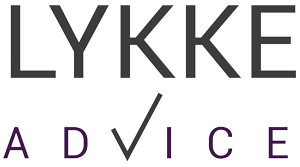In its ongoing commitment to environmental sustainability and the European Green Deal, the European Commission has taken significant steps towards combating greenwashing and promoting transparent environmental claims. The proposed Green Claims Directive fights against greenwashing and regulates how companies substantiate and communicate their environmental claims. Companies will only be able to make environmental claims about their products and services if those claims are backed by scientific research and assessment. The proposal will also regulate environmental labels.
What is the goal of the legislation?
The primary objective of the proposed Green Claims Directive is to address the growing issue of greenwashing. Greenwashing refers to the misleading or false environmental claims made by companies regarding their products or services. Such deceptive practices can misguide consumers, undermine trust, and hinder the transition to a greener economy. Moreover, it creates unfair competition for producers that are transparent about their practices, be they sustainable or not. The directive seeks to rectify this by establishing minimum requirements for the substantiation and communication of voluntary environmental claims and labels. Therefore, the proposed legislation would protect consumers and companies from greenwashing and enable consumers to make informed purchasing decisions based on credible environmental claims and labels.
Where are we now?
As of March 22, 2023, the European Commission has put forward a proposal for the Green Claims Directive. The legislative process is now underway, involving discussions and negotiations in both the European Parliament and the Council. Both the Committee on the Environment, Public Health and Food Safety (ENVI) and the Committee on the Internal Market and Consumer Protection (IMCO) are responsible for this directive. Virginijus Sinkevičius, Commissioner for the Environment, Oceans and Fisheries presented the proposal in ENVI on 23 March 2023. The proposal was discussed in IMCO on 23 May. In the Council, discussions started in April at the Working Party on the Environment and at the Working Party on Consumer Protection and Information. The directive is designed to complement the European Green Deal and the Circular Economy Action Plan, harmonize legislation at EU level, and achieve a more unified European market.
What will it mean?
This directive applies to voluntary explicit environmental claims made by companies about products or companies in business-to-consumer commercial practices. It addresses only specific environmental claims, such as “made of 80% recycled plastic” or “biodegrades in 365 days”. Such claims must rely on recognized scientific evidence and consider the full life cycle of a product, addressing all aspects and impacts on the environment. To ensure implementation, independent bodies will perform verification of environmental claims and labelling schemes. Generic claims such as “eco-friendly”, “green”, “sustainable” are not covered by this directive, as they will be tackled in another upcoming directive named Empowering Consumer for the Green Transition.
Another element of greenwashing is the proliferation of environmental labels. There are currently more than 232 eco-labels active in the EU and almost half of them were not verified by third-parties or not verified at all. This leads to consumers being overwhelmed by the number of various sustainability labels and undermines the credibility of such certifications. For this reason, the proposal introduces a ban on the creation of new public national and regional environmental labels. Development of new public environmental labels will only be allowed at the EU level. Furthermore, new private labels will only be permitted if they provide added value, meet requirements set in this Directive, and obtain pre-approval by accredited verifiers. The impact on existing labels is still to be determined.
Who does it affect?
This Directive will affect all producers. However, microenterprises are exempted from certain requirements to ease the burden on small businesses. Moreover, provisions to assist SMEs with financial support, training, and technical assistance are included.
As this directive progresses through the legislative process, it is essential for businesses, particularly SMEs, to stay informed and engaged. As a boutique consultancy, Lykke Advice can provide valuable guidance navigating the evolving landscape of environmental regulations. With our expertise, SMEs can ensure that their voices are heard and taken into account, and their practices align with the forthcoming Green Claims Directive, contributing to a greener and more transparent European market. Don’t hesitate to contact us if you wish to learn more about lobbying services.



